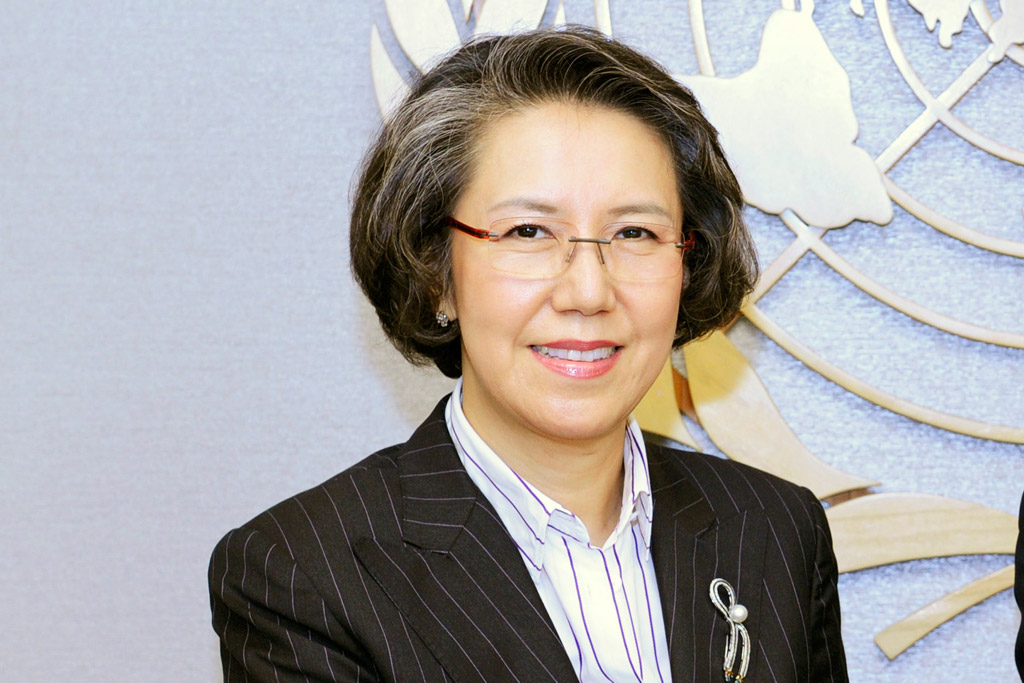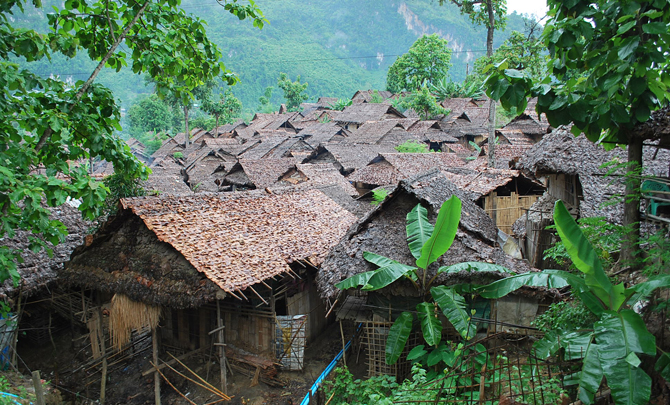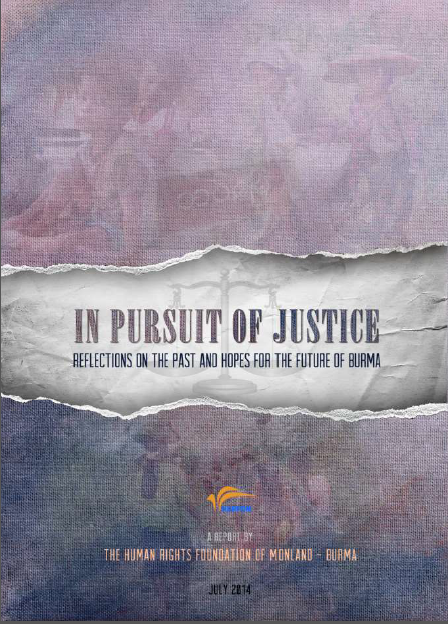Posts Tagged ‘Burma Army’ (238 found)
Burma/US: Kerry Should Press Rights Concerns
(New York) – US Secretary of State John Kerry should press the Burmese government during his upcoming visit to reverse Burma’s deteriorating rights situation, Human Rights Watch said today. Kerry is scheduled to visit Burma from August 8 to 10, 2014, to attend meetings of the Association of Southeast Asian Nations (ASEAN) and the ASEAN Regional Forum (ARF) […]
• • •New Special Rapporteur, Familiar Human Rights Abuses
 The new Special Rapporteur on the situation of human rights in Burma, Ms. Yang Hee Lee, concluded her first visit to the country on 27 November, and unsurprisingly, found the human rights situation troubling, warning of the potential of backtracking on initial reforms, an analysis that resonates with many Burma followers. She outlined her initial findings at Rangoon airport in a statement just as she finished her mission, highlighting the shrinking of democratic space, the ongoing religious violence and discrimination, the deteriorating humanitarian conditions for internally displaced persons (IDPs) – especially Muslims – in Arakan State, the severe human rights abuses in Kachin State, the urgent necessity for legislative reform and the rule of law, the lack of involvement of women in both the peace process and governance, the exclusion of local people in large scale development projects and the impact of such projects on vulnerable communities, and the continuing incarceration of political activists, among other issues.
The new Special Rapporteur on the situation of human rights in Burma, Ms. Yang Hee Lee, concluded her first visit to the country on 27 November, and unsurprisingly, found the human rights situation troubling, warning of the potential of backtracking on initial reforms, an analysis that resonates with many Burma followers. She outlined her initial findings at Rangoon airport in a statement just as she finished her mission, highlighting the shrinking of democratic space, the ongoing religious violence and discrimination, the deteriorating humanitarian conditions for internally displaced persons (IDPs) – especially Muslims – in Arakan State, the severe human rights abuses in Kachin State, the urgent necessity for legislative reform and the rule of law, the lack of involvement of women in both the peace process and governance, the exclusion of local people in large scale development projects and the impact of such projects on vulnerable communities, and the continuing incarceration of political activists, among other issues.
We welcome Ms. Lee’s open and honest discussion of the term “Rohingya” and her pledge to be guided by international human rights law as regards the use of this term. This was despite the insistence of government officials not to use the word “Rohingya” throughout her trip to Arakan State. On the basis of this principled stance, we are reassured that Ms. Lee will not flinch from using the term when appropriate in the future. After visiting two camps for IDPs, one for Arakan Buddhists and one for Rohingya Muslims, Ms. Lee was troubled by both the terrible conditions in the camps and the lack of humanitarian access that is resulting in people dying due to insufficient medical assistance. She also acknowledged that this situation is “undeniably worse” in the camp for Rohingya. While she did not explicitly state that this is a situation engineered and maintained by the authorities, it is obvious that the unequal treatment of Buddhist and Muslim IDPs is a deliberate policy by the government that further punishes the Rohingya simply due to their ethnicity.
• • •Burma: Eight Chin Activists Convicted; Fined
[Chiang Mai, Thailand] On Wednesday 23 July eight Chin activists – charged under article 18 of “The Right to Peaceful Assembly and Peaceful Procession Act” with protesting without permission – were convicted in Matupi township court under presiding Judge Aung Mya, and ordered to pay fines of 30,000 kyats each the same day […]
• • •Flurry of Rumor and Counter Rumor Regarding Repatriation is Detrimental to Refugees
 A week ago, rumors began doing the rounds that the Thai military plans to repatriate the 130,000 or so displaced persons from Burma living in nine camps in Thailand along the length of the Burma-Thailand border in the relatively immediate future. The rumors started when General Prayuth Chan-o-cha, Head of the National Council for Peace and Order (NCPO), mentioned that the refugee issue had been discussed with Senior General Min Aung Hlaing, Commander-in-Chief of the Burma Army. On 14 July, the Bangkok Post then quoted an unnamed Thai military source saying that working teams have sorted 130,000 refugees into three groups as part of preparations to send them home, a process expected to take around a year or more. A Burma Border Guard Force officer also told Mizzima on 15 July that armed ethnic groups in Karen State would allegedly cooperate in the resettlement of refugees on their return home.
A week ago, rumors began doing the rounds that the Thai military plans to repatriate the 130,000 or so displaced persons from Burma living in nine camps in Thailand along the length of the Burma-Thailand border in the relatively immediate future. The rumors started when General Prayuth Chan-o-cha, Head of the National Council for Peace and Order (NCPO), mentioned that the refugee issue had been discussed with Senior General Min Aung Hlaing, Commander-in-Chief of the Burma Army. On 14 July, the Bangkok Post then quoted an unnamed Thai military source saying that working teams have sorted 130,000 refugees into three groups as part of preparations to send them home, a process expected to take around a year or more. A Burma Border Guard Force officer also told Mizzima on 15 July that armed ethnic groups in Karen State would allegedly cooperate in the resettlement of refugees on their return home.
However, according to DVB, Colonel Weerachon Sukondhadpatipak, a spokesman for the Thai military, refuted the rumors: “I don’t think this [repatriation] will happen at this moment. It is an issue we need to solve, but it doesn’t mean we are sending the Burmese people back to [Burma],” Weerachon said. “It is a long process that needs to be discussed with all concerned parties.” Indeed, nationalities would first need to be verified and people head-counted […]
• • •Burma: Drop Charges against Chin Activists; End Impunity for Sexual Violence
[Chiang Mai, Thailand] The Chin Human Rights Organization (CHRO) today condemned the Government of Burma for pursuing legal proceedings against 8 Chin activists who demonstrated
against sexual violence perpetrated by Burma Army soldiers, and failing to deliver justice for Chin victims of sexual violence. CHRO urged the Burmese authorities to immediately and unconditionally drop the charges against the activists, and reiterated its long-standing call for an independent and
impartial international mechanism to investigate serious human rights violations in Burma, including sexual violence, in order to deter further violations and help end the culture of impunity […]
Burma: State Leash on Media Freedoms at its End
With the passage of Burma’s Press Law in April this year, there had been a glimmer of hope that the case of the journalists from Unity Journal would be given a bit of protection for their daring expose of an alleged chemical weapons plant in the Magwe division last January.
After all, the new law guaranteed that no journalist may be jailed for doing her or his work […]
• • •Burmese Government Must Stop new Military Operation against Ceasefire Army in Northern Shan State
Since June 2014, the Burma Army has deployed nearly 2,000 troops from over 10 battalions in an operation against a ceasefire group, the Shan State Progress Party/ Shan State Army (a.k.a Shan State Army-North or SSA-N), in Kehsi and Murng Hsu townships. The operation has inflicted human rights abuses against hundreds of local civilians […]
• • •High-level Intimidation of Chin Women Activists Exposes Systemic Impunity for Military Rape
On June 10, 2014, a soldier from Burma Army Light Infantry Battalion no. 269, stationed at Razua, in Matupi Township, Chin State, attempted to rape a local Chin woman, aged 54, badly injuring her. When the police handed over the perpetrator, Myo Thura Kyaw, to the Razua military base, many local people worried that proper justice would not be served. They began questioning his whereabouts and demanding transparent prosecution under a civilian court. In a similar case last year, a soldier from the same base who had attempted to rape a 14-year-old girl was let off without punishment […]
• • •In Pursuit of Justice: Reflections on the Past and Hopes for the Future of Burma
Since 2011, Burma has begun to emerge from 50 dark years of dictatorship. Now, under President Thein Sein’s nominally civilian government the possibility has arisen for Burma to begin rebuilding and reconciling divided segments of the nation, and to provide justice to victims for decades of human rights abuses.
Burma’s minority ethnic communities have experienced grave human rights abuse at the hands of the SPDC regime and its strong arm of the Burmese military, or Tatmadaw. In order to transition successfully towards true democracy and national reconciliation, the Burmese government must address, and act upon, the specific needs expressed by victims of past abuse, documented and expounded herein, in order to move away from the abusive culture of the past towards a united future.
Within this report you will find a detailed history of Burma’ ethnic conflict, how that conflict has been sewn into the very fabric of the SPDC regime’s ideology and governing strategy, and ways in which the Tatmadaw has implemented the regime’s strategy by crippling livelihoods, physically and mentally abusing, and destroying the security of Burma’s minority ethnic communities […]
• • •Statement by Political and Community Based Organizations in Kayah State Condemning the Planned Trespassing Charges Against 190 Villagers of Hso Lyah Ku Village in Pruso Township of Kayah State
a) The lands around Hso Lyah Ku village, which have been farmed for generations by the villagers, have been forcibly confiscated by Light Infantry Battalion 531 due to the failure of previous governments to issue title deeds to land owners, and also due to the failure to proceed with registration of the land according to the 2012 Land Law […]
• • •









 All posts
All posts